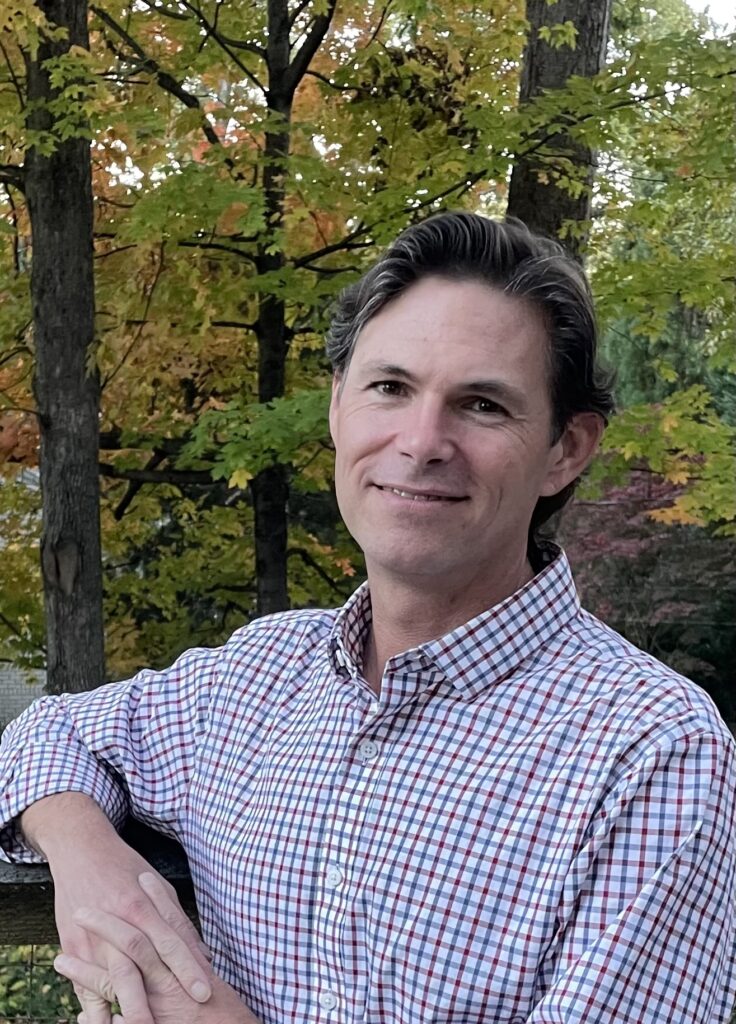Religion and Public Engagement
The RPE Concentration is unique to Wake Forest University—the only program like it in the country. Encouraging theoretical and practical exploration at the intersection of religion and public life, the Concentration is open to Religious Studies majors and minors, who want explore the world and make a difference.
Students are able to take what they learn in the classroom and apply it to the real world by engaging in public work through research projects, service-learning opportunities, and internships for academic credit. These internships take our concentrators all over the world, from downtown Winston Salem to south-central Chile—from Washington, DC to South Africa.
By working with the most qualified professors in various specialties, students develop competence in public engagement in reciprocal collaboration with diverse communities regionally, nationally, and globally.
Embracing the spirit of pro humanitate, the RPE Concentration allows students to pursue their deepest interests and directs them towards community development consistent with internationally accepted standards of human rights and the highest academic standards of teaching, research and collaboration.
The Concentration in Religion and Public Engagement provides an opportunity for students to:
1) Explore the intersection of religion and public life
2) Engage in public work through community-based research, service-learning, and internships.
Vision:
RPE fosters competence in public engagement in reciprocal collaboration with diverse communities regionally, nationally, and globally for educational, economic, cultural and political development.
Mission:
RPE facilitates student and community development consistent with internationally accepted standards of human rights and the highest standards of teaching, research, and collaboration.
Undergraduate Concentration in Religion and Public Engagement: 13-15 hours
Core Course (1)
REL 332. Religion and Public Engagement. (3h) – Examines the interface between religious communities and the public sphere, and the potential for social change in contemporary global and local contexts through a range of readings, guest lectures, field trips, and films. Traditions and emphasis may vary with instructor.
Method or Theory Course (1)
REL 200. Approaches to the Study of Religion. (3h) – Explores the history of and methodological resources for the study of religion. Focus may vary with instructor, but the emphasis is on the ways religion has been defined, studied, and interpreted over the last several centuries.
REL 305. Ethnography of Religion. (3h) – Study of theory and method in ethnography of religion where students closely read ethnographies from a variety of cultures and discuss the practical, methodological, and ethical issues related to ethnography. Course culminates with students researching and writing their own ethnographies. (CD)
REL 336. Religious Traditions and Human Rights. (3h) – Study of relationships and tensions between religious traditions and human rights, with illustrations from historical and contemporary issues and movements.
REL 338. Religion, Ethics, and Politics. (3h) – Examines ethical issues in religion and politics using materials from a variety of sources and historical periods.
Elective Courses (2)
The elective courses can be chosen from the Department of Religion or other departments and programs with approval of the RPE committee.
Internship
A supervised internship with approved community partner for a total of one semester or one full summer. The internship includes assigned readings, a sustained research and writing portfolio, and an oral presentation.
REL 288. Field Program in Religion and Public Engagement (3h)
Deadlines for student internships to be finalized:
Fall: July 31
Spring: November 1
Summer: March 31
These are the dates by which students should have made contact with a community partner, composed a list of host organization expectations and responsibilities, and a list of learning outcomes for the student. Learning contracts and internships organized after these dates may not be approved, and will not qualify for financial assistance from the department.
REL 288: Field Program in Religion and Public Engagement
Assignments and Coursework
- Reading: read 2-3 books (selected in consultation with the RPE academic supervisor of your internship) related to the focus of the internship;
- Write an 800-1000 word book review on each book:
- Describe the author’s reason for writing the book
- What problem/s do they address?
- How do they address it/them?
- How does religion affect/shape/influence/relate to the public issue/s with which you are dealing in your placement?
- What did you learn from the book that affected the way you understand/do the work?
- Journals: These journals should not be merely descriptive. They should also include integrative analysis (matching experiences with books under review), and explicit connections to your academic work. As you write your journal entries (2 single-spaced pages/week) , address some of the following topics (whichever seems most important) each week:
- Learning Objectives: describe the particular activities you are involved in; how do they relate to your learning objectives? What skills are you learning? How do religious practices, beliefs, or institutional dynamics affect the issue/s, work, site of the internship?
- Site Dynamics/Issues: identify what is difficult and easy; frustrating and rewarding; are there any conflicts with co-workers, supervisors, or clients? what responses are evoked for you? are there logistical issues you need to talk to your supervisor about? are there issues you’d like to talk with the RPE Academic Supervisor about?
- Final paper (1600-2500 words): This paper should evidence significant integration between the personal insights offered in the journals, and the academic insights gleaned from the review books, as well as other coursework in and beyond religious studies. The goal is to indicate the ways in which this engaged experience informs your academic work, and the ways in which your academic work has helped you to be more intentional and sensitive in the duration of your engaged learning project. This should be an academic paper with appropriate citations in Chicago B style. Your paper should address and assess the role and impact of religion in the issue your internship addressed, and elucidate any important conclusions or takeaways from this experience.
- Give final, public presentation
- Audience: Religion Department majors, minors, faculty, and any special invitees you want to invite.
- Format: 20 minute presentation with 10 minutes for questions
- Why did you choose this internship context?
- What did you do during the internship?
- What are the most important things you learned with regard to your work and the impact or role of religion?
Deadlines for student internships to be finalized:
Fall: July 31
Spring: November 1
Summer: March 31
These are the dates by which students should have made contact with a community partner, composed a list of host organization expectations and responsibilities, and a list of learning outcomes for the student. Learning contracts and internships organized after these dates may not be approved, and will not qualify for financial assistance from the department.
In addition, RPE students might apply to Lindmor Scholars funding for support for projects. Please consult the department chair, Jarrod Whitaker, for information.
- What can you do with an RPE Concentration?
100% of students who have graduated with the RPE concentration are employed or in graduate school. They have become policy wonks, non-profit managers, community organizers, financial advisors, teachers, artists, and public health managers.
- What types of internships and projects are available?
In many cases we have created unique internships which suite the particular passions of our students. But students may also choose to pursue an internship with one of our existing community partners. The only limit is your imagination!

Lucas Johnston
Professor of Religion and Environment, Director of Religion and Public Engagement

Lynn Neal
Easley Professor of Religious Studies

Tanisha Ramachandran
Associate Teaching Professor

Nelly Van Doorn-Harder
Professor of Religious Studies, Co-Director – Middle East and South Asia Studies
Thank you for your interest in the Religion and Public Engagement Concentration.
If you have additional questions about RPE, please contact Jarrod Whitaker, Department Chair.
